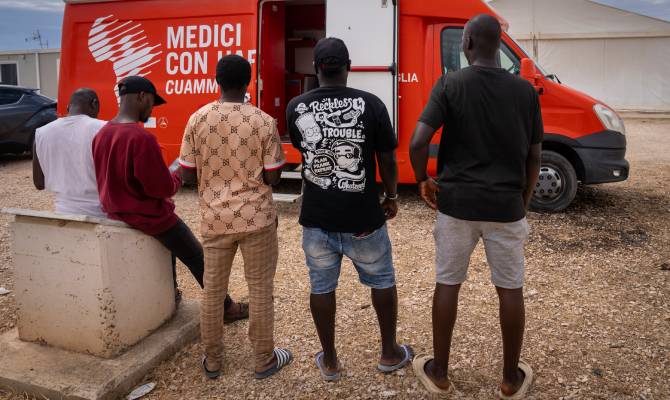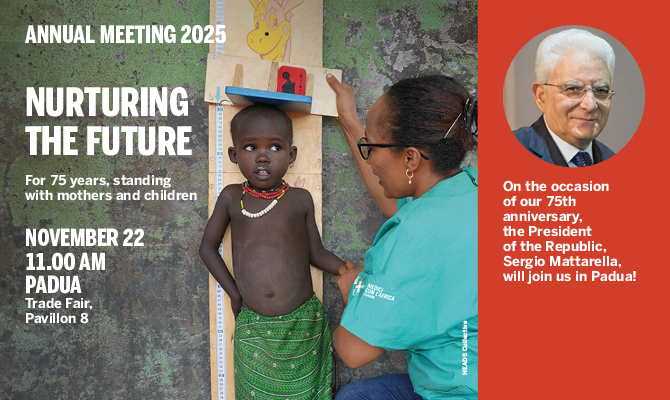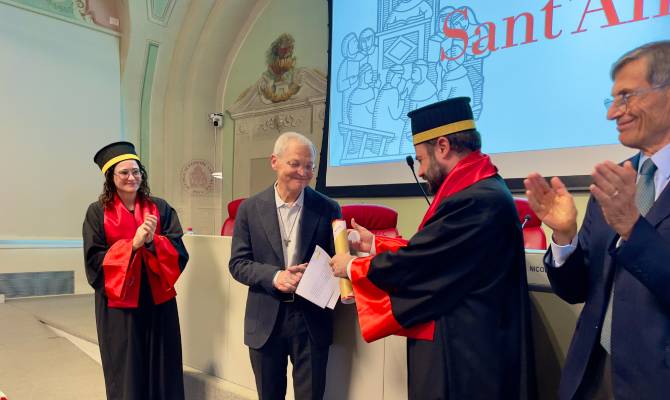It is in the Capitanata area, a district in the province of Foggia, that Doctors with Africa CUAMM is renewing its commitment in Apulia. Quietly launched in 2015 by the local group Doctors with Africa CUAMM Bari, the proximity-based healthcare intervention, carried out as part of the Su.Pr.Eme 2 project, focuses on providing healthcare to marginalized groups—mainly seasonal and migrant agricultural workers — living in informal settlements such as Casa Sankara and Arena. The initiative has since expanded to the municipalities of Nardò (LE), Turi (BA), and Terlizzi (BAT), with seasonal activities.
The Apulia region hosts approximately 138,000 foreign nationals, most of whom reside in the provinces of Bari and Foggia, where agriculture is the predominant economic activity. The local agri-food industry relies heavily on the contributions of seasonal and migrant workers to meet the demands of planting, harvesting, and processing crops. They work long hours in the fields and live on the fringes of society in informal settlements located outside urban centers. These settlements vary in size depending on geography and season, with peaks in population during the summer months when over 6,000 people are estimated to arrive for the harvest. Some agricultural workers remain there year-round due to the lack of alternative housing, living in extremely precarious conditions in what are commonly referred to as “ghettos.”
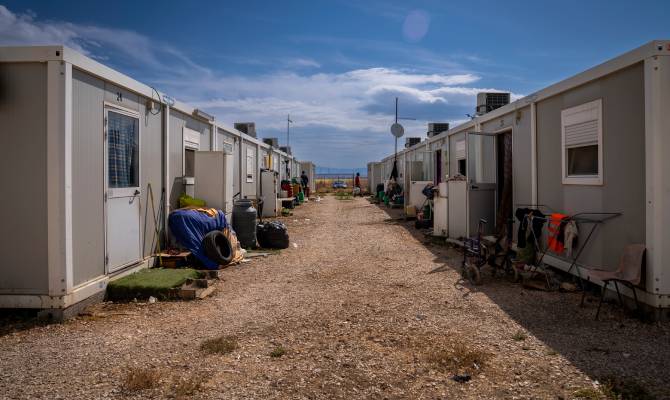
Although we dislike the term, the image of isolation and marginalization it conveys is unfortunately very true. These are often squatted buildings, farmhouses, or shantytowns where migrant workers live in a state of constant social, economic, and health exclusion. While some more organized environments exist—like the Boncuri guesthouse near Nardò—the condition of marginalization remains a constant.
“The living conditions of these people have a significant impact on their health,” said Lucia Raho, CUAMM Medical Coordinator. “Even in the more dignified settings, like the Boncuri guesthouse, living conditions are far from ideal for many reasons, and this ultimately affects their health.”
CUAMM’s work
CUAMM’s ongoing commitment in the province of Foggia, and its seasonal work in the municipalities of Nardò (LE), Turi (BA), and Terlizzi (BAT), is a proximity-based healthcare initiative aimed at ensuring access to primary services for migrant populations. In collaboration with AReSS, the Apulia Region, and local health authorities (ASLs), these efforts seek to improve access to local services for vulnerable groups, with a focus on social inclusion.
“I remember the first time I visited these areas,” said Lucia Raho. “I had been working in a hospital for years, and with other volunteer doctors from CUAMM Bari, we decided to bring some basic equipment and see for ourselves what the situation was and what the most urgent needs might be. What I saw didn’t seem real—I couldn’t believe that just around the corner, in my own city, people were living in such conditions.”
The Cuamm medical teams encounter a wide range of issues, often worsened by the lack of timely medical intervention. Among those treated, cases of diabetes, hypertension, muscle pain, and gastrointestinal or dermatological conditions related to poor hygiene are common.
To provide basic medical services, CUAMM’s multidisciplinary teams travel in a mobile clinic to reach informal settlements in the province of Foggia, as well as those in Turi, Terlizzi, and the Boncuri guesthouse in Nardò.
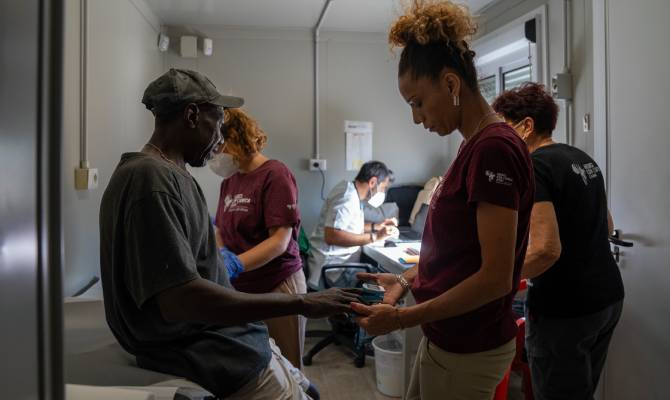
“Providing proximity-based care means having doctors, nurses, healthcare workers, and volunteers assisting patients and referring them to the national healthcare system when necessary,” said Andrea Atzori, Head of International Relations. “Through our work in Apulia, CUAMM aims to support migrants, especially seasonal workers who are vulnerable to exploitation and at high risk of being subjected to illegal labor practices.”
Barriers to Healthcare Access
In the informal settlements of Apulia where CUAMM operates, only 8% of people have a general practitioner. For most, proximity-based care is their only access point to healthcare.
“What we do—thanks also to close collaboration with social workers—is build a bridge between the healthcare system and marginalized communities who face language barriers, prejudice, and stereotypes,” said Cesare De Vergilio, community doctor and CUAMM volunteer.
Social, economic, and health-related isolation affects not only seasonal migrant workers but also people experiencing homelessness and members of the Roma and Sinti communities. With financial support from the Department of Welfare of the Municipality of Bari, Doctors with Africa CUAMM, in collaboration with the Caps social cooperative and Psychologists for the People, is also working in the Roma and Sinti settlement of Japigia. There, a Proximity Socio-Health Center is active, offering prevention, counseling, and care services to members of the community and other marginalized groups, including homeless individuals in the municipality of Bari.
“Healthcare access is a challenge for the Roma and Sinti people living in this settlement. Most of them lack regular documents, and only a few have a health card, so they don’t seek medical care. The outreach unit gives them access to basic services they would otherwise be excluded from, and this is highly appreciated by the entire community,” said Daniel Tomescu, who has been a community liaison for Japigia for 25 years.

While our work continues steadily in nine sub-Saharan African countries, our mission in Apulia is a reminder that no one should be left behind and that the right to health, access to care, and human dignity are principles worth defending—principles on which more inclusive and compassionate communities can be built.
CUAMM’s interventions in Apulia—specifically in the provinces of Foggia, Bari, and Barletta-Andria-Trani—are carried out as part of the Su.Pr.Eme. project, a five-year multi-fund program financed by the Ministry of Labour and Social Policies through the Asylum, Migration and Integration Fund (FAMI) 2021–2027, in synergy with the National Inclusion Plan 2021–2027.

